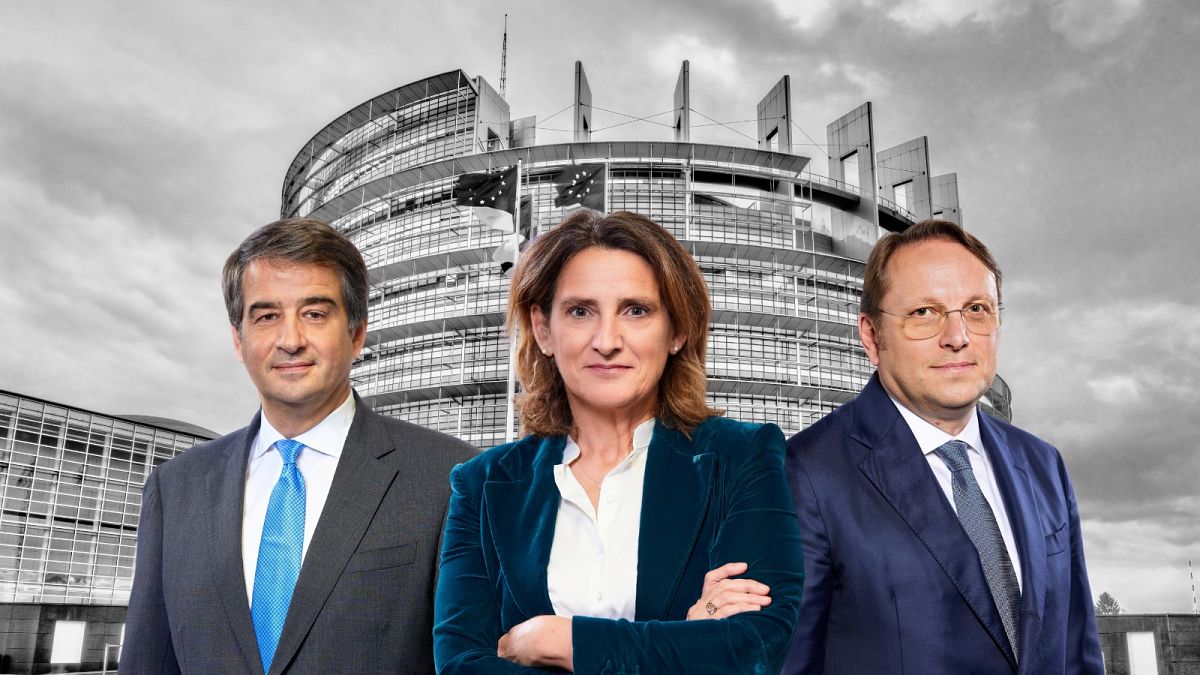The parliamentary confirmation of Ursula von der Leyen’s new team of Commissioners has turned into a political drama that may delay the start of the new EU executive. The confirmation hearings for the 26 commissioners-designate led to intense negotiations and party rivalries, resulting in a deadlock that postponed the decision on the six Vice-Presidents and one Commissioner. This political gridlock may affect the planned December start of the new EU executive. Attempts to broker peace between party leaders failed, leaving the situation uncertain.
The issues that led to this political standoff include national and EU-level concerns as parties vie for influence and suppress others. The EPP is attempting to strengthen ties with the ECR to secure a more right-leaning majority in the hemicycle. Conservative vice-president-designate Raffaele Fitto has become a target as a key figure in this coalition shift. Certain commissioners-designate have been targeted to weaken their portfolios, leading to strategic vetoes.
The winning tactic of postponing confirmations has led to a stalemate as parties maneuver to gain the upper hand. Delaying the approval of specific commissioners allows parties to maintain bargaining power and influence the overall outcome. A package deal that includes several key commissioners-designate is essential to break the deadlock and move forward with the new EU executive. The involvement of Commission President von der Leyen has so far failed to resolve the impasse.
Despite the ongoing political drama, a compromise is likely to be reached as all parties involved have a vested interest in approving their vice-president candidates. A possible compromise may involve concessions from all sides, allowing for the approval of key commissioners-designate and ensuring von der Leyen’s second term can begin on schedule. The EPP holds a trump card in committee votes, as its support may be crucial in deciding the fate of certain candidates.
The emergence of a potential ‘Venezuela’ coalition highlights the shifting dynamics within the EU, as EPP leader Manfred Weber seeks to assemble a new right-wing majority. The traditional centrist coalition of Christian democrats, socialists, and liberals that previously ruled the hemicycle may be replaced by this new alliance. The current political stand-off between parties may pave the way for the rise of a Venezuela bloc, fundamentally altering the power dynamics within the EU and posing challenges to the established pro-European coalition.











